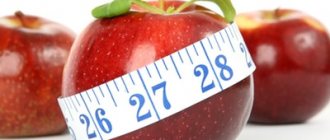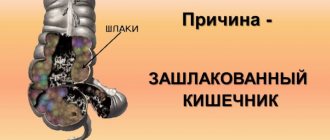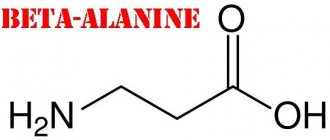Edited by an expert:
Nadezhda Primochkina, nutritionist - 11/18/2020
According to statistics, from 65 to 80% of women suddenly gain weight during menopause. Even ladies who ate too much sweets in their youth and did not gain weight are at risk. Weight gain after 45–55 years is associated with hormonal changes in the body. Fortunately, you can influence this process and stay slim. And at the same time improve skin condition, well-being, and prevent chronic diseases. In this article, you will learn how to enter a new stage of life with your head held high.
External factors for losing weight
Rapid weight loss is a process when the body seems to “melt” before our eyes, and weight decreases significantly. A weight of 45 kilograms is critical for health and life-threatening. Moreover, the woman did not change her lifestyle and did not starve. At first, you feel normal.
But after some time, weakness comes, sometimes intoxication, fever and other signs of ailment begin.
A thin woman is not necessarily sick. There are women with an asthenic type of structure who are predisposed to slimness, but in this topic we will talk about unhealthy thinness. Some women are even happy about their unexpected weight loss, but in fact this can be a dangerous sign of the formation of internal problems. Emotional breakdowns, a lot of stress, a tendency to give up, fears, and life problems leave their mark on women’s health:
Emotional problems
The time of perimenopause and menopause is accompanied by a woman’s special emotional sensitivity. Hormonal fluctuations affect her feelings and thoughts. At this time, depression, despondency due to aging and the accompanying menopause, such as hot flashes and loss of strength, are common. Weight loss during menopause can occur from the loss of loved ones, after a change of place of residence.
But most likely the opposite happens, and a representative of the fairer sex in the same circumstances is more likely to gain weight by 10 kg or even more, especially during the onset of menopause.
With a lot of stress inside, there is a frequent release of adrenaline, which strongly burns fat from the subcutaneous tissue, increases metabolism, causing muscle spasms, as a result the woman has no appetite. The characteristics of the body can influence this, unless there is a hidden disease lurking inside it.

Long-term depression during the menopausal stage, if difficult life situations are still present, can lead to drowsiness and weight loss. Appetite and interest in life disappear, and the desire for suicide comes. In this case, the help of a psychotherapist and the help of loved ones is necessary.
Hard labour
Since there is less strength during menopause, she has to rest more often, and she is not able to do the work that a woman could do before. She may try to overcome herself and work, but then the whole body works in emergency mode and does not have time to recover.
Then it is possible to lose a lot of weight, but this is fraught with problems with blood pressure, heart health, musculoskeletal system and general well-being.
Disruption of daily routine
One of the main problems of the 21st century is haste, a lot of things to do, work, work... A woman at an advanced age cannot cope with the stress of the day, skips meals, thinking that it is not important, works late into the night without getting enough sleep after that, and loses body weight. But calories not received by the body can provoke a lack of nutrients, and this further provokes an imbalance in hormones.
We already know how dangerous this is during menopause, when hormonal hunger can create complete chaos in the body and bring bad consequences. Hormonal disruptions disrupt the functions of the gastrointestinal tract, central and peripheral nervous system, bone structure, heart and blood vessels.
Addiction to smoking, alcohol, drugs
Bad habits contribute to the depletion of the body, because these substances contain many poisons that kill organs little by little.
They accelerate energy exchange in the body, the work of the heart, stimulating the psyche, bringing stress, and reducing the desire to eat. Also, the taste buds are affected by these toxic substances as well as by flavoring chemical additives, and food becomes unappealing.
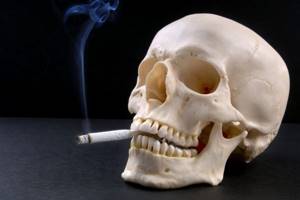
These facts should not push you to decide to take up these bad habits if you are an overweight woman and decide to lose weight. Health is more important than slimness, dear readers!
What to eat and how to lose weight during menopause at 50?
Losing weight during menopause or the onset of menopause begins with a restructuring of the diet. Regardless of the chosen diet, after 40 years, the menu should be dominated by exclusively healthy and natural products. No sugar substitutes, artificial proteins, or various dietary supplements of dubious origin. You shouldn’t pay attention to suitcases with food for weight loss; it’s more profitable and healthier to cook yourself.
Foods that are enemies for weight loss
Here is a list of prohibited foods for women who want to lose weight during menopause. They are high in calories, cause sugar spikes or retain water. Some foods negatively affect hormones.
What not to eat during menopause:
- refined sugar;
- any confectionery products, baked goods made from wheat flour;
- White rice;
- alcohol and sweet drinks, natural fruit and berry juices;
- canned food, especially sprats;
- sausage, semi-finished products, lard;
- chips, French fries and other fried foods.
Separately, it is worth taking out all the sauces. Even those that are prepared at home. How many boiled potatoes can a woman eat? No more than two pieces. What if she seasoned it with butter, mayonnaise, or other sauce? With such additives, even a whole bowl will not be enough. It is sauces and spices that often provoke overeating, and also increase the calorie content of a dish by two (or even three) times. During menopause, it is important to prevent this.

Helping products for women
Everything is clear with unhealthy foods, but what can you eat when losing weight? It is advisable to choose the simplest dishes possible. It is not advisable to make salads from 20 ingredients, prepare a combined stew or a multi-ingredient hodgepodge. The simpler the diet during menopause, the better for a woman. You should not eat first and second courses at lunch, drink compote, or snack on desserts. It's better to choose one thing.
What to eat during menopause:
- raw vegetables, at least 400 g per day;
- fermented milk products, at least 200 g per day;
- baked or boiled fish;
- cereals, definitely buckwheat, pearl barley;
- avocado, can be replaced with flaxseed oil;
- 30-50 g nuts, sesame or pumpkin seeds.
As for fruits, during the period of weight loss it is advisable to limit them to 2-3 times a week. Even green apples contain a lot of sugar, which is not needed after 40 years. It is advisable to choose green tea as a drink. You can also sometimes treat yourself to fruit drinks, compotes, but without sugar.
Cook it right!
In addition to choosing the right foods, you need to prepare them in the healthiest ways possible. This includes boiling, stewing, grilling, and baking in the oven. You can sometimes use a microwave oven. No frying in oil, deep frying, dressings or marinades based on fatty sauces, vinegar, or mustard. The most simple and healthy diet will help you easily lose weight even during the difficult period of menopause.
Can a lady lose weight after treatment?
If you were treated for certain diseases before menopause, you may have been prescribed medications that can help you dramatically lose weight.
There are many drugs that cure one thing but cripple another. This is chemistry, and it is hostile to our body. To cure diseases of the thyroid gland, brain, and oncology, substances that deplete the body are used. Entering menopause can worsen the effects of even antibiotics, not to mention other serious medications.
- Increased metabolism . Metabolism, or metabolism in the body, is the chemical reactions within the body to keep it functioning properly. Typically, metabolism decreases with age, and this makes you fat. But with an imbalance of hormones or emotional breakdowns, it can grow, and then an unexpected loss of body weight occurs. The body does not have time to process the incoming nutrients, as they say: everything goes to waste.
- Diabetes disease . With the first type of disease, severe weight loss occurs, with the second type – obesity. With the first type of disease, there is an irresistible hunger due to a disruption in the production of glucose in the body, which is too much in the circulatory system, and there is not enough insulin. Signs of type 1 diabetes:
- constantly thirsty, the oral cavity is dry;
- heavy sweat;
- weak condition, nervousness;
- constant feeling of hunger;
- visual impairment;
- your mouth smells like acetone;
- frequent urge to urinate.

- Hypocorticism . The adrenal cortex is the site of production of hormones important to the body. Adrenal dysfunction is a real blow to a woman’s health. The manifestation of the disease is as follows:
- weakening muscle strength;
- general fatigue;
- the skin darkens;
- decreased blood pressure;
- addiction to salty foods;
- lack of appetite;
- abdominal pain.
- Malignant tumors . These diseases cannot be diagnosed immediately, but there are still signs of early cancer. Losing weight helps to find out that the patient is beginning to have an oncological problem, although there is no pain yet. A neoplasm that appears in the gastrointestinal tract, liver, pancreas, lymph nodes, and female organs usually produces symptoms accompanied by weight loss from the very beginning of the disease. Leukemia and blood cancer also give a symptom of exhaustion. The signs are:
- weight reduction;
- wounds do not heal;
- compacted areas are palpated;
- urination and fecal excretion are abnormal;
- change in voice, presence of cough;
- feeling of exhaustion;
- brittle nails;
- hair loss;
- bloating, colic, constipation - in cases of tumor formation in the female organs;
- skin and iris change color.
- Thyroid pathology . The disease is called thyrotoxicosis. The thyroid gland intensively releases certain hormonal substances. No matter how much a person eats, he does not get full and loses weight, because thyroid hormones in large quantities cause increased metabolism. Another name for the disease is hyperthyroidism, its symptoms are as follows:
- a person cannot bear the stuffiness;
- rapid pulse;
- shiver;
- diarrhea;
- constant feeling of thirst;
- disruptions of menstrual cycles;
- distracted attention.

- Tuberculosis disease . The clinical picture of the disease is abundant, weight loss is at the forefront at the onset of the disease. It is difficult to cure this disease, but you can pay attention to weight loss and completely destroy the tuberculosis bacillus. In addition to paroxysmal cough with blood and purulent clots, tuberculosis has other features:
- presence of impotence, weakness, drowsiness;
- profuse sweat;
- pain in the chest.
- Diseases of the gastrointestinal tract . A decrease in the body's production of the hormone serotonin during menopause not only affects the deterioration of mood, this hormone is also involved in the digestion of food. The result of this is a predisposition to gastrointestinal diseases in this period of life.
Diseases of the gastrointestinal tract, starting with gastritis and ending with various ulcers, inflammation of the intestines, polyps on it, cause weight to rapidly decrease.
With inflammation of the gastrointestinal tract, the absorption of food is blocked, the presence of diarrhea and vomiting further removes beneficial substances from the body and dehydrates it, causing constipation. This robs a person of energy and strength. The onset of menopause with a lack of hormones can lead to these diseases.
- Anemia . During menopause, iron deficiency may occur in the blood, resulting in oxygen starvation with signs of lethargy, weakness, loss of appetite and weight. Iron deficiency is also caused by intestinal bleeding and parasites in the body.
- Parasitic infections . Statistics say that almost every adult has parasites. Worms suppress the immune system, appetite disappears, and sometimes, on the contrary, gluttony sets in, but the person loses weight. Constipation may begin due to blockage of the intestines by worms, food is not digested, metabolism is disrupted, vomiting, belching, and weakness occur. There are cases of the disease without symptoms, only with weight loss. Therefore, it is important to take a stool test for eggworm not only in childhood, but also in adults.
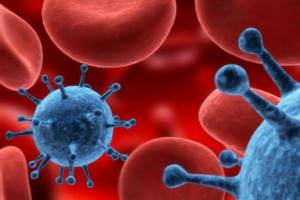
How to lose weight during menopause with intermittent fasting?
Intermittent fasting is also called cyclic fasting, but this does not change the essence. The weight loss system appeared not so long ago; Japanese scientists conducted research and proved the effectiveness of food breaks. Unlike fractional meals, with intermittent fasting you need to eat rarely, and take a break for sleep at night and before breakfast for at least 16 hours.
It is believed that with prolonged abstinence from food, the body of even mature women begins to produce growth hormone. It inhibits cell aging, rejuvenates, and restarts internal metabolic processes. This is what you need during menopause.
How to lose weight during menopause at 50:
- eat only at permitted times without snacking. It is enough to take 2-3 meals a day;
- do not indulge in sweets, baked goods and other products from the prohibited list;
- monitor your health. If pain appears in the gastrointestinal tract, you feel a loss of strength, and drowsiness, then periodic fasting is not suitable;
- During food abstinence, you can drink water and unsweetened tea.
There are several common regimens allowed during menopause. For women during menopause, the 16/8 method will be optimal. That is, a person fasts for 16 hours and can eat for 8 hours. Usually they have an early dinner and a late breakfast, but you can adjust the diet to suit your lifestyle. Sometimes people eat their first meal at 5-6 pm and have dinner at 12 am. This scheme also works, the weight goes away.
On a note! If 16 hours of fasting is easily tolerated, then you can try the 18/6 or 20/4 scheme. There are people who eat only once a day, and they get 23/1.
Diagnosis of weight loss
To determine the cause of weight loss, a serious diagnosis is needed. If the etiology of your condition is unclear, a woman should see the following doctors, depending on the manifestations in her health:
- to a therapist;
- to a gynecologist;
- to an endocrinologist;
- to an oncologist;
- to a gastroenterologist;
- to an infectious disease specialist;
- to a psychotherapist.
After examination by doctors, the woman will be prescribed the following examination:
- ultrasound examination of the gastrointestinal tract, thyroid gland, pelvic organs;
- fluorographic image;
- gastroscopy;
- hysteroscopy;
- urine, feces, blood tests for hormones, leukocytes, sugar and others;
- analyzes of scrapings of female organs;
- analysis of thyroid tissue for TSH;
- tests for oncology.
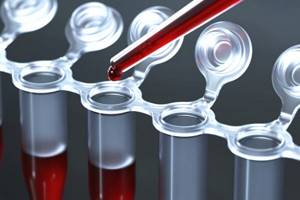
After conducting a full examination, doctors will identify the real reason for the woman’s weight loss. In accordance with the diagnosis, the patient will receive recommendations for qualified treatment.
Myth No. 4. Obesity may be a precursor to cancer
Actually: YES
It is reliably known that such a connection exists. However, the reasons why tumor growth is “started” are being clarified. Many scientists believe that carcinogenesis in this case is triggered by trans fats.
Essentially, these are polymer formations that form after repeated heating of the oil. A significant amount of trans fats is present in purchased confectionery products, semi-finished products, sauces (mayonnaise, ketchup, etc.), spreads (butter substitute), quick soups, cheeses with hydrogenated oil.
Obesity is a significant risk factor for endometrial cancer, esophageal adenocarcinoma, stomach, liver, kidney, breast, and ovarian cancer. In many cases, obesity is a consequence of metabolic syndrome, one of the signs of which in women is an increase in waist circumference of more than 88 cm. Therefore, to eliminate risks, it is recommended to undergo regular screening for early detection of cancer. For example, CITILAB is the official operator of the new innovative test ESPIRE Screen (service code 2500). The study reveals the risk of cancer and inflammatory diseases, chronic intoxication, metabolic disorders even when there are no symptoms (!). In Germany, ESPIRE Screen is required; without it, medical life insurance cannot be issued.
Nutrition for sudden weight loss
If no serious diseases are found in you, then you can take care of your diet by establishing a new regimen and composition of products:
- Divide your meals into six to eight small meals.
- Sufficient amount of protein foods.
- Lots of fruits and vegetables, but not with coarse fiber.
- Porridge.
- Reduce salty, spicy, fried foods in the diet.
- During menopause, good food is fatty ocean fish and seafood.
- Consume mostly brown bread rather than wheat bread.
- Dairy products.
How to lose weight during menopause on fractional meals?
Many diets are based on fractional meals. This system is useful in many ways. It allows women not to transfer, facilitates the work of the gastrointestinal tract, and eliminates the need to count calories. If you ask any nutritionist how to lose weight during menopause after 47 years, he will definitely tell you about fractional meals.
What is the essence of losing weight:
- you need to eat often (pauses of 2.5-3 hours), but in small portions;
- serving size is no more than 250 ml or a full glass;
- it is important to drink, and it should be water (at least 2.5 liters per day);
- no need to drink during meals or immediately after a meal;
- it is important to monitor your stool and avoid constipation;
- last meal 2.5 hours before bedtime.
Important! To lose weight during menopause on fractional meals, you need to eat healthy foods from the list above. Chocolate, chips, sweets, even in small quantities, will cause weight gain.
Herbs that increase appetite
- bird knotweed;
- fennel;
- thigh;
- sagebrush;
- elecampane;
- dandelion.

Statistics say that in 4/5 of all cases of sudden weight loss, the culprit is a disease of the internal organs.
With a rapid decrease in body size and changes in well-being, it is better not to wait for it to worsen, but to quickly make an appointment with a doctor to determine the cause of what is happening to you.
Useful and interesting video on this topic:
About
Estrogens
Estrogens are hormones produced by women's ovaries. These hormones ensure reproductive work, affect the elasticity of the skin, mucous membranes, and their tone. They take part in all metabolic processes.
A decrease in hormone levels negatively affects the rate and rhythms of absorption of beneficial compounds. With the onset of menopause, the rate of metabolism decreases quite significantly. For this reason, women rapidly gain weight, despite the fact that they exclude fatty foods from their diet.
In addition, lipids tend to produce estrogen. Therefore, the body itself strives to increase the presence of fat in order to replenish the reserves of this hormone. This is a kind of way out to compensate for the fading functionality of the ovaries.
Phytoestrogens
In order to normalize hormonal balance, a specialist may recommend medications for a replacement effect:
- Estrovel;
- Remens;
- Feminal;
- Qi-Clim;
- Femicaps;
- Klimadinon.
Estrovel
Feminal
Femicaps
Klimadinon
Remens
Qi-Klim
They resume good metabolism of substances, normalize the functioning of the gastrointestinal tract, and are used to replace estrogens and progesterones with phytohormones that are absolutely harmless to health. These medications should be used as prescribed and under the supervision of a physician.
Foods prohibited and allowed for consumption
The basis of the diet during menopause is considered to be:
- seafood dishes, lean fish;
- rye and whole grain bread;
- chicken eggs, cooked soft-boiled (or in the form of a steam omelet);
- dishes from veal, homemade turkey, chicken. It is recommended to cook them in a double boiler;
- vegetables that contain little starch. These include: asparagus, cucumber, celery, green peas, spinach, garlic, zucchini, red pepper;
- dairy products with a low percentage of fat (bifidok, fermented baked milk, cottage cheese);
- olive, flaxseed oils, nuts;
- green tea;
- drinks made from medicinal plants;
- rosehip decoction;
- non-carbonated mineral water.
During menopause, caviar, canned fish, and dishes made from fatty river or sea fish are excluded from the diet. A woman should also give up smoked meats, processed meats, bacon, and offal.
Prohibited foods also include foods that contain “simple” carbohydrates. The list of such products includes: condensed milk, jam, sweet fruits, waffles, ice cream, jam, chocolate products, honey.
Diet
Food sharing is the healthiest diet option for menopause women. Daily nutrition requires the presence of 60% vegetables and fruits, 25% proteins and 15% long-digesting carbohydrates.
How to effectively lose weight at age 50+? When developing a menu, you should include lower-calorie foods for dinner and higher-calorie foods for breakfast. Based on the dishes below, you can think through a menu for both 1 day and 7 days.
This diet may contain:
- A simple morning meal: corn flakes topped with milk or low-fat yogurt;
- 1-2 dried bread with a piece of low-fat cheese, fruit;
- salad, with sunflower oil;
- boiled legumes, smoothie with banana, piece of bread with jam.
- baked fish, salad with herbs and cheese, small buns;
- boiled chicken, fruit;
What foods are best to avoid?
Menopause is not a disease, so there are no strict prohibitions on foods during menopause. However, it is important to understand that for better health, the dosage of individual foods should be moderate. It will be easier for you to keep track of your figure, and the symptoms of menopause will appear less frequently and less intensely if you reduce your consumption of:
- salt;
- Sahara;
- alcohol;
- semi-finished products;
- mayonnaise;
- lard and lard;
- smoked meats;
- sparkling waters (sweet);
- juices from packs;
- spicy food;
- coffee;
- chocolate;
- feta cheese and suluguni;
- bakery products (white breads)
